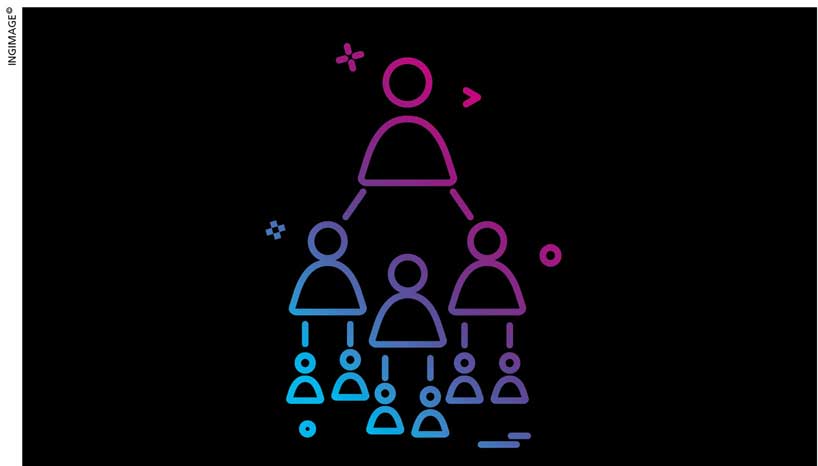CONSULTING SERVICES
DISRUPTING CONSULTANCIES
The advent of ‘brains at scale’ – Dr. Rita McGrath and Dr. Muneer Muhamed
Most global consulting firms have been hit hard by the pandemic. The global management consulting industry had been hoping to touch US$ 270 billion this year if not for COVID-19.
 Predicting the end of traditional management consulting has been something of a cottage industry for a while but so far, market leaders have retained their allure despite a world that has shifted under them.
Predicting the end of traditional management consulting has been something of a cottage industry for a while but so far, market leaders have retained their allure despite a world that has shifted under them.
In 2013, American economist Clayton Christensen argued that consulting’s expensive integrated black box business model couldn’t last. Will this year prove him right?
With slowing economies, clients are demanding and want more than simply rehashed reports. This seems like an inflection point that the consulting business should see as being ripe for major disruption.
Yet, dominant firms such as McKinsey, BCG and Bain have responded with considerable agility. Their ‘up or out’ employment system conveys a number of benefits, among them creating a rich pool of alumni with contacts as potential clients. It also keeps the talent at the firm young and fresh.
Historically, the major players have successfully created a flywheel, securing engagements that teach them a great deal about complex situations and reusing that learning in future work. These firms have also spent considerably on acquisitions in design, advertising and digital spaces to add to those capabilities needed by clients.
It begins with the fact that consultants are embedded in the world as it is and not the one ahead. It’s very difficult to give advice that will lead to a system favouring disruption for you as an incumbent.
This also means one pain point for clients of consulting services is that the consultant gets paid no matter what the outcome is, limiting shared incentives. We have seen executives at major corporations express intense frustration with this model.
Irrespective of the type of consulting work that major firms undertake, the core business model is based on leverage. The more junior people they staff for a client relative to the more senior people, the more profits they make.
This means that the digital enabled productivity gains that have revolutionised other industries such as banking and IT have not been brought to bear in consulting. It also relates to the type of work a consultant is anchored to.
‘Procedures consulting’ means that the main job to be done is obtain capacity and know-how on achieving a well understood outcome such as installing an ERP system.
‘Grey hair consulting’ is all about accumulated expertise. The client’s job is largely based on the consultant’s reputation and his or her accumulated expertise. ‘Brains consulting’ involves focussing the best minds on new problems.
A new assignment generally begins in the ‘brains’ area and moves to ‘grey hair’ as firms gain experience, and eventually become so well understood that they end up in the procedures space.
However, while clients may want a ‘brains’ type of outcome, it’s difficult to get much leverage out of an engagement such as this. As innovations, technological shifts and sources of competitive advantage change faster than ever, we can expect the proportion of traditional consulting work to move more into the ‘brains’ space.
We can also anticipate that firms that can offer specific expertise in an area even if their individual consultants are pricey will begin to capture some business that might have previously gone to an established consulting firm.
And we will see some large firms engaging individual experts on a project specific basis and charging clients even more; but it is a win-win for some consulting firms.
It’s also possible that smart firms will continue to build strategy capability internally and wean themselves away from being dependent on long-term consulting relationships.
The trend towards simply accessing assets rather than owning them has been disruptive in many industries – for example, Uber and Airbnb. As ‘brains’ work becomes more important and deeply specialised, expertise is necessary and innovative upstart firms can credibly offer an alternative.
This is likely to have a deep impact on the world of the consultant as entities such as the GLG Group make it possible for clients to simply buy a bit of some world-class expert’s time for a real-time conversation.
Firms such as Toptal are already creating markets for high end technical talent that prefers a freelance environment.
We anticipate a market opportunity for an entirely different kind of consulting firm – one that uses digital technologies for traditional consulting – not very different to what Dollar Shave Club did to the shaving and grooming sector, and Pepperfry did to the furniture business.
While there will always be a market for high end consulting, look out for an increasing number of technology infused alternatives, which offer a combination of expert ‘brains at scale’ and more clearly aligned incentives to put pressure on the traditional model.



